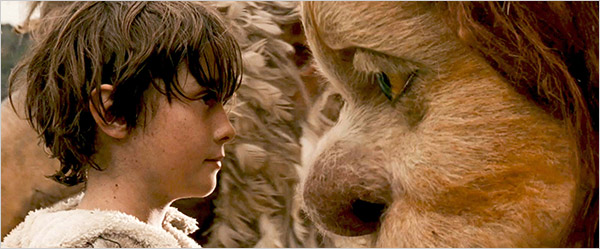Where the Wild Things Are (2009)

I haven’t read the original book, so this is purely based on the film work by Spike Jonze.
This is going to be one of cult classics. I thought the film was a postmodern twist on Spielberg’s E.T. the Extra-Terrestrial. Even while I was watching it reminded me of the scene from ET where Eliot, the main character, tells his mother off that the father is in Mexico with a new girl friend, and the older brother yells at Eliot I am going to kill you!
As a kid watching ET several times, I completely missed that whole family dynamics. But if you see it when you are semi-grown up, and after film history professor telling you that the father is always absent in Spielberg films, you see a whole different story about ET. The alien is almost the father figure, dubbing to the fact that the father is now an alien because he’s in Mexico. The phrase ET phone home
takes on another meaning, reflecting the gradual rise of separated families that America started to see in the 80s. In the case of ET, there were bunch of kids, grownups, and an alien.
What if you flip the kids-to-alien ratio? You get Where the Wild Things Are. One kid and bunch of aliens. The whole father figure displacement thing is much more overt this time. Where it differs from ET is the mainline of the story. As in, I don’t know if a kid would enjoy watching this film besides furry things talking and doing silly things occasionally. Maybe it’s meant to be not so peachy because the reality isn’t if you’re stuck in a situation where the grownups are fighting, but after a while, it comes off as preachy. Just saying.
In any case, the film lets you think about all the details, like the way Carol takes Max out through the desert to show his work, and also KW takes Max out through the desert to show her friends, but Carol and KW are cold to each other. The details are constructed in dream-like way — the fragments from the real world reappears and evolves in the other world. The connection between Woman, feed me!
and the King, and the process of dethronement makes the film. The make-believe state of monarchy is where the child is, and as he is recognized as a commoner, he leaves the protection of the mother and rejoins the society. B for very good.